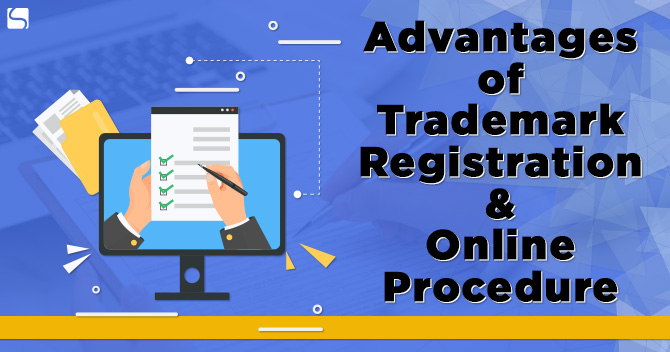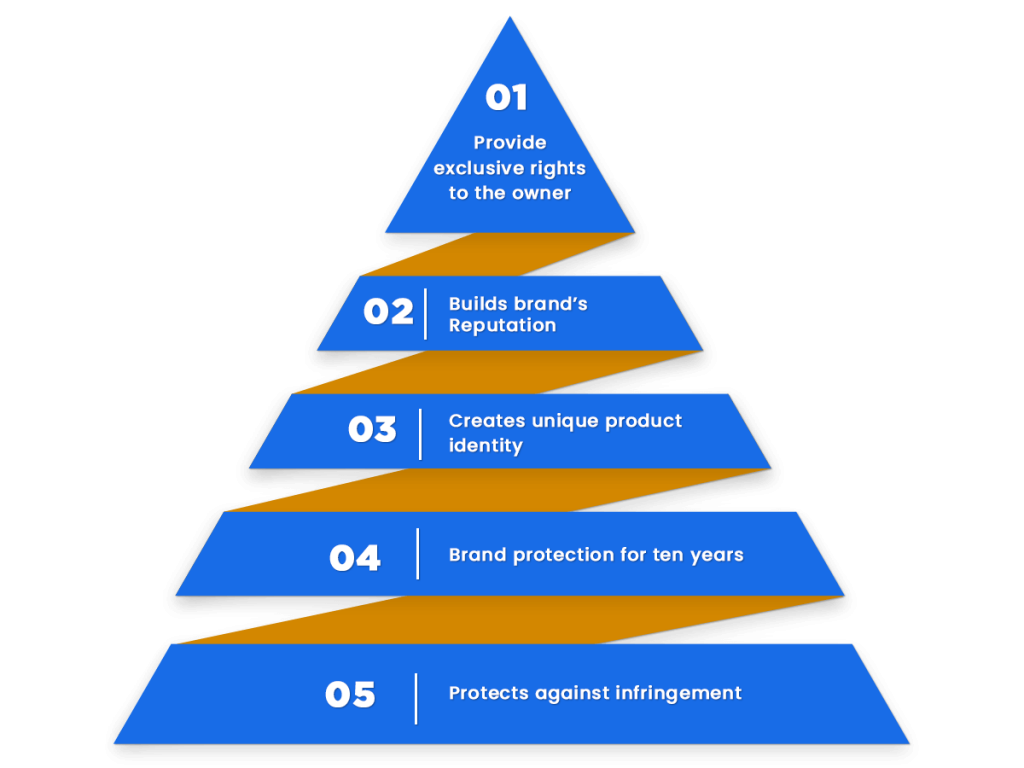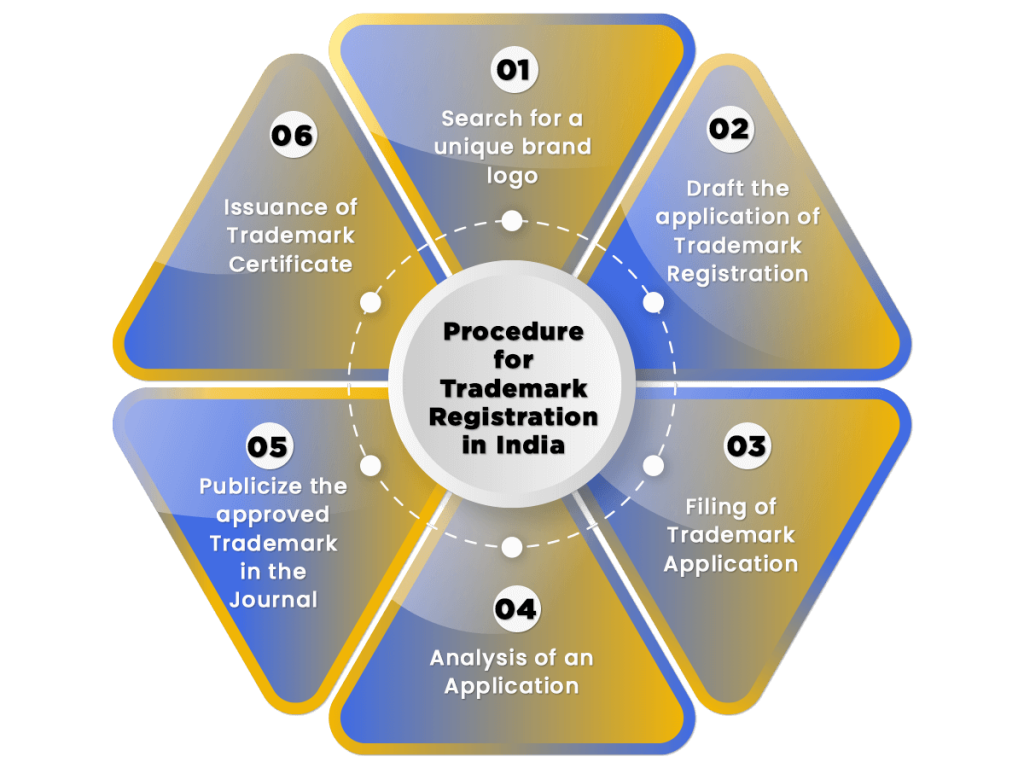What are the Advantages of Trademark Registration?

Dashmeet Kaur | Updated: Feb 29, 2020 | Category: Trademark
Stepping into the corporate industry is just the tip of the iceberg; one has to put enormous efforts to create a unique brand in the competitive market. The biggest challenge that often strikes entrepreneurs is to compete in the same business line amidst the existing renowned brands. Read out the top Benefits of Trademark Registration.
One needs to develop a product or good that is not only peculiar in nature but can draw an extensive customer base as well. However, there are high chances that other companies might misuse your Product Name, Logo, or Mark to threaten your business.
Therefore, it is always advisable to get your Mark, Name, or Logo registered, as it will safeguard the business against infringement through government protection.
This write-up will enlighten you with several advantages of Trademark Registration along with its online registration procedure.
Table of Contents
Overview of Trademark Registration in India
Trade Marks Act, 1999 (Section 2) defines a Trademark as a Mark which distinguishes the Services and Goods of one Company from others. It is a legal permit that accentuates a Company in the cut-throat business industry and protects a certain name, symbol, signatures, tagline, design and label associated with that brand.
Moreover, it enables customers to identify your Company’s products. Ministry of Commerce and Industry, Controller General of Patents, Designs and Trade Marks with Government of India regulates Trademark Registration[1]. There are a total of 45 classes for variant products and services to register a Trademark. Hence, it is crucial to mention the class of your product or service during Registration.
Several businesses yield Royalties with a Certificate of Trademark and leverage additional advantages of Trademark Registration. Besides, a Trademark holder also has the right to prosecute a claim for damages, if any violation of Trademark takes place.
Why is it Important for a business to register a Trademark?
The significance of Trademark Registration is beyond an assessment in the corporate sphere. It safeguards a business against fake and fraudulent invasion. Trademark is intellectual property or an intangible asset that an owner can choose to transfer, sell or franchise. Further, a business can improve its credibility by obtaining a Trademark Certificate. Since it creates a positive image in the customer’s mind that a particular brand is reliable and procures quality products.
Advantages of Trademark Registration in India
The Advantages of trademark or TM Registration in India are as follows:

Provide exclusive rights to the owner
A registered Trademark owner has an exclusive right to utilize the same Mark for each category of items which falls under the class submitted for a Trademark Application. The proprietor harbours the sole authority of a Trademark and prevents others from using Trademark under the same class wherein it is registered.
Builds brand’s reputation
A Trademark certifies the quality of goods and accentuates the goodwill of the brand. Therefore, it helps to gain the trust of the customers and increase their dependability on a particular brand.
Creates Unique Product Identity
It becomes utmost necessary to overshadow others when dealing in a competitive line of business. One can easily leave a strong impression of its brand through a unique logo which conveys the vision and other attributes of his organization. The biggest advantage of Trademark Registration is that it simplifies for prospective clients to discover your brand. Trademark makes your products different from your rivals and serves as an efficient promotional tool.
Brand protection for ten years
Once a Trademark is registered, it becomes valid for a period of 10 years from the date of its filing and can be renewed at a minimal fee.
Protects against infringement
A proprietor of registered Trademark can take a sigh of relief as no other individual can utilize his brand logo. In case, anyone misuses a registered Mark without the consent of its proprietor; then the proprietor can file legal actions under Trade Marks Act, 1999.
Also, Read: Top Ten Reasons for Trademark Objection in India
Procedure for Trademark Registration in India

The steps involved in the process to apply for trademark online are as follows:
Search for a unique brand logo
You need to look for a unique name or logo for your business. Make sure that the logo/name has not been used previously by any Company and registered earlier. The logo of a Company must be relevant to the niche of its business and should not mislead the customers about a product or service.
Draft the application of Trademark Registration
The next step after short listing a logo/name is to draft a Trademark Application which costs around INR 3500. Attach all the important documents with the Application, such as a copy of the logo (9X5cm in size), Incorporation Certificate or Partnership Deed, Signed Form TM-48, Address proof, Aadhaar card & ID proof of Directors.
Filing of Trademark Application
You can file a Trademark Application either through online or manual mode. In the manual Registration, the applicants have to visit at Registrar Office and submit Trademark Application along with the documents. Thus, the applicant gets an Acknowledgement receipt within a period of 15-20 days. However, in the online mode of Registration, the applicant receives an Acknowledgement receipt instantly soon after submitting his Application.
Analysis of an Application
Registration authority shall then take over the examination process. They will check if the information is correct and valid. If any discrepancy occurs, the Application may reject.
Publicize the approved Trademark in the Journal
Once the Authority approves the Application, Trademark shall be published in Trademark Journals. If any third-party does not raise an objection against the Trademark’s authenticity within 3 months of its publication, then the brand logo will be accepted universally.
Issuance of Trademark Certificate
After a series of trials and tribulations, Registrar will accept the Application and issues you a Certificate of Trademark.
Difference between Copyright, Trademark, and Patent
The difference between Copyright, Trademark, and Patent are as follows:
| CATEGORIES | TRADEMARK | COPYRIGHT | PATENT |
| Regulatory Framework | The Trade Marks Act 1999 | The Copyright Act 1957 | The Patents Act 1970 |
| Types of Protection and Works | Protection of unique and novel name that makes a brand separate from others. A Trademark includes name, logo, slogans, shape, colour, etc. | Protection of original creative and artistic expressions, such as Dramatic works, artistic works, and literary works etc. | Protection of inventions that are novel, original, unique and have industrial utility. |
| Validity and Reach | Trademark Registration is valid for a period of 10 years and can be made perpetual by renewing the said trademark in every 10 years. Trademark Registration is territorial in character to claim rights and should be applied to each country separately. | Copyright registration is valid till the life span of the author + 60 years after his/her death. Further, this Protection is available in most of the countries of the world. | Patent Registration is valid for 20 years, starting from the date when the application is first made. Further, it is a territorial right. That means the patent registration for an invention is effective only within the territory of India. That also means separate patent registration is required to be filed for each country wherever protection is needed. |
| Secures | Trademark Registration secures the brand name under which the products and services are sold and rendered. | Copyright Registration protects both Creative and Intellectual Creations. | Patent Registration secures only those inventions that are useful and helpful for the world and has some use as well. For example, New Invention in the Pharmaceutical Industry. |
| When the Rights come into Existence | After the completion of Trademark Registration, the holder of the mark can claim complete right over it. Further, the period of 12 to 18 months is needed to obtain Trademark Registration. | The exclusive right over the copyright comes into existence the moment the author creates the work. | Normally, the process of Patent Registration takes around 2 to 3 years time in total. However, the owner has the right to restrict anyone from claiming right over a specific patent the moment he/she applies for the Provisional Patent. |
| Need of Provisional Application | The process of Trademark Registration in India does not include Provisional Application. However, it does require a Trademark Search or Trademark Public Search. | No need for provisional application. | A provisional application provides the applicant 12 months time to file a detailed specification and priority date to claim. |
| Symbolic Representation | Used when registration of a trademark is in the process: ™ Used when the process for trademark registration is complete: ® | There is no symbolic representation to show copyright registration. | There is no symbolic representation to show Patent Registration. |
Conclusion
Trademark Registration provides several advantages to a business; it not only creates a distinct brand image but also gives a legal right to businesses to fight against infringement. The procedure of Trademark Registration requires legal competency.
If you wish to register a Trademark for your business or venture, you must consult Swarit Advisors. We render a wide range of services, starting from Trademark Registration to Trademark Renewal. Moreover, we can assist you in the Filing of Response against the Trademark Objection as well. Our team ranks high in the industry for providing services related to Trademark
Also, Read: Checklist For Registering a Trademark in India














